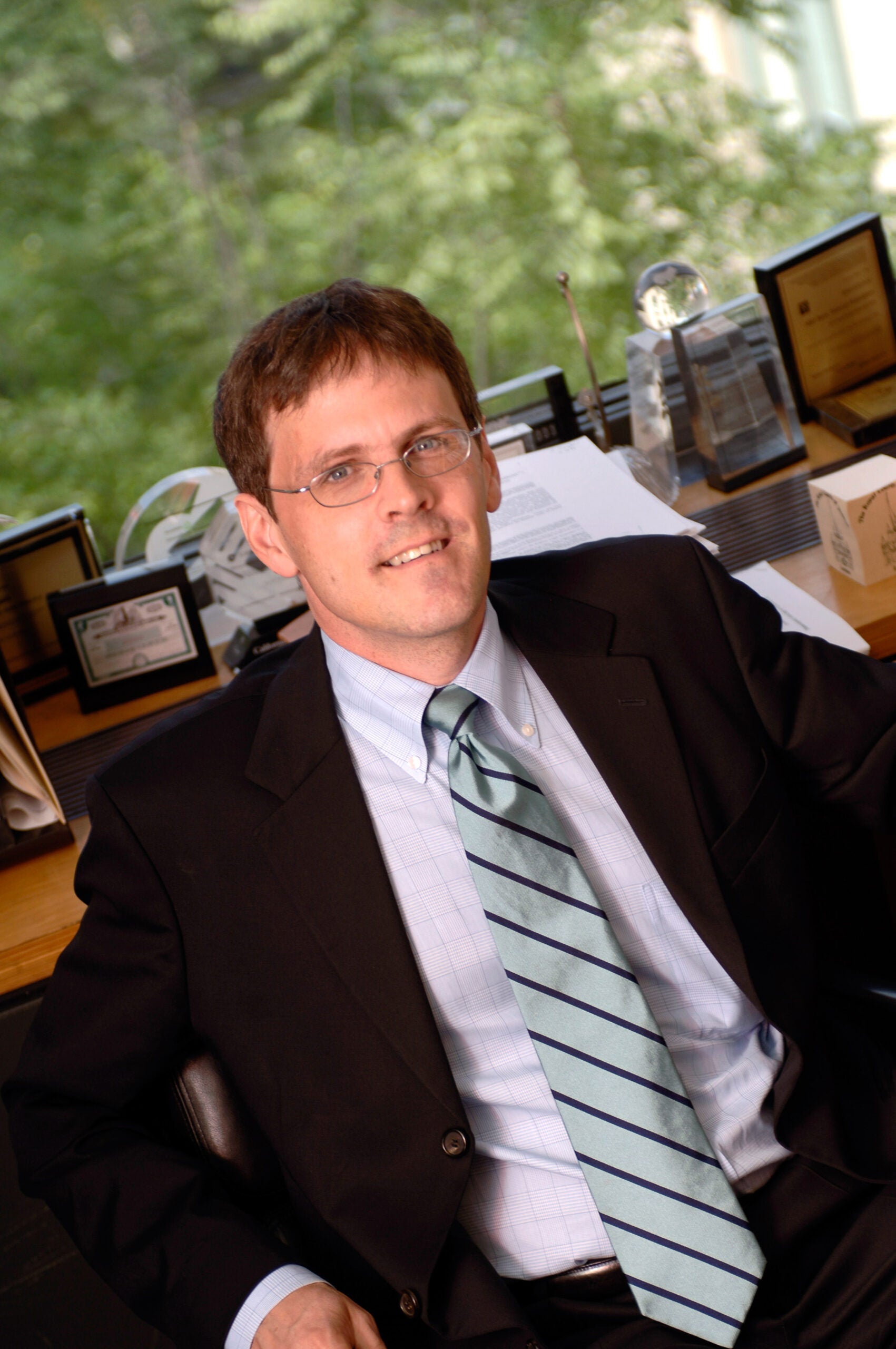Harvard Law School Professor John C. Coates spoke at a briefing on Oct. 30 in Washington, D.C., to urge the Securities and Exchange Commission to require publicly traded companies to disclose their political spending. The event, which was organized by the nonprofit consumer advocacy organization Public Citizen, also included speeches by former Harvard Law School Professor Sen. Elizabeth Warren and Sen. Robert Menendez.
Advocates have been pressing the SEC for action on a political spending rule for several years now, following the Supreme Court’s 2010 Citizens United ruling that allowed corporations and unions to spend unlimited sums from their coffers on independent political efforts.
According to an Oct. 30 Huffington Post article, in 2012 corporations gave only a small amount of money to super PACs, which must report their donors, but so called “dark money” flowed into 501(c)(4) nonprofits that are not required by law to identify their donors. A Huffington Post review of records estimated that corporations anonymously contribu ted $400 million dollars in the 2012 election. This marked a 500 percent increase in “dark money” from the pre-Citizens United 2008 election.
“This issue is not going away,” Coates said. “Dark money is going to get bigger and bigger and bigger. There is no reason to think otherwise.”
Coates, a specialist in corporate and securities law, argued that the SEC already mandates disclosure of any activity that significantly changes returns for shareholders. Referring to a Wall Street Journal editorial that criticized the push for disclosure, he stated “I submit to you there is no area of SEC rulemaking where if you had evidence consistent with the Journal’s position that an activity could affect returns by 2 to 5 percent, that there would be no disclosure,” Coates said. “There’s no area where the SEC has not already intervened on that kind of an issue.”
He stated that corporate political activity “creates distinct and difficult-to-model risks.” Studies have indicated that political activity can harm shareholder interests through harm to a company’s reputation and other threats.
Since the Citizens United decision, the SEC has received over 640,000 public comments, the majority of which back regulation. Supporters hope that regulations will be put in place by the first half of 2014. In April, Menendez introduced a bill, S. 824: Shareholder Protection Act of 2013, which will force the SEC to wrote a consumer protection rule.
“This is foundational,” said Warren, who is a co-sponsor of the bill. “There is no excuse. There is no reason, on the other side, for saying a corporation wants to be able to spend shareholders’ money and not tell shareholders how that money is being spent.”
“Disclosure of corporate political spending is good for investors, good for business, and good for the American public,” said Warren. “Shareholders have a right to know how the companies they own are spending their money.”
Coates is the John F. Cogan, Jr. Professor of Law and Economics at Harvard Law School, and Research Director of the Program on the Legal Profession. He has testified before Congress and provided consulting services to the U.S. Department of Justice, the U.S. Department of Treasury, the New York Stock Exchange, and participants in the financial markets, including individuals, mutual funds, hedge funds, investment banks, commercial banks, and private equity funds.
In addition, he served as independent distribution consultant for the Securities and Exchange Commission in two “Fair Fund” distributions to investors – including one of the first distributions (of $50 million relating to an enforcement action regarding payment for order flow), and one of the largest distributions (of $306 million relating to enforcement actions regarding market timing and late trading).
